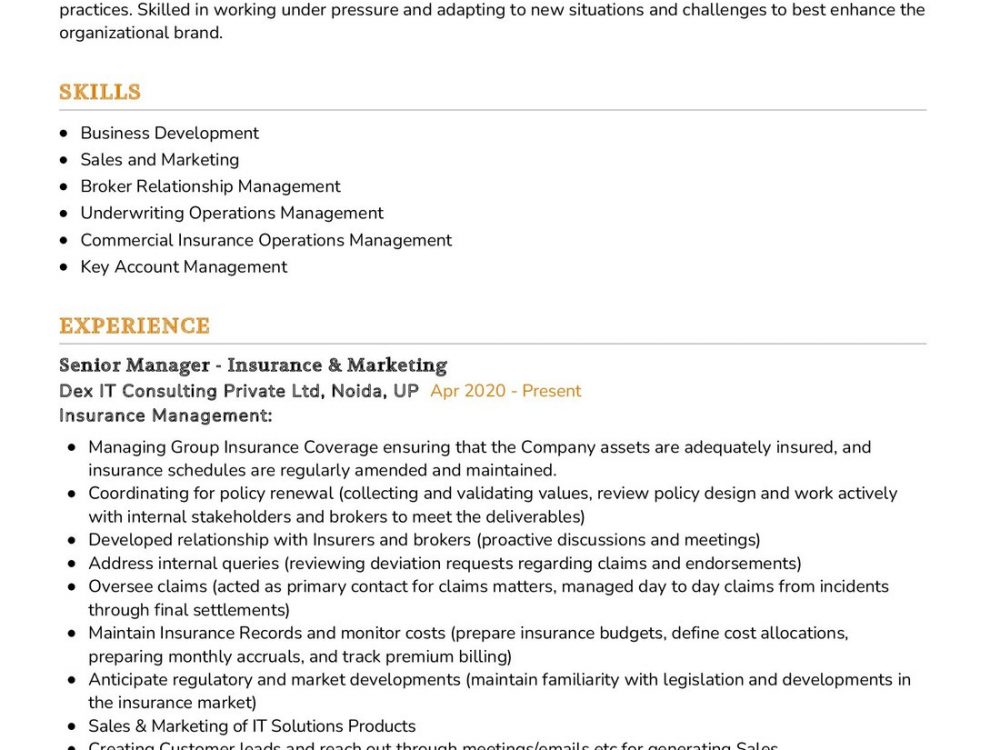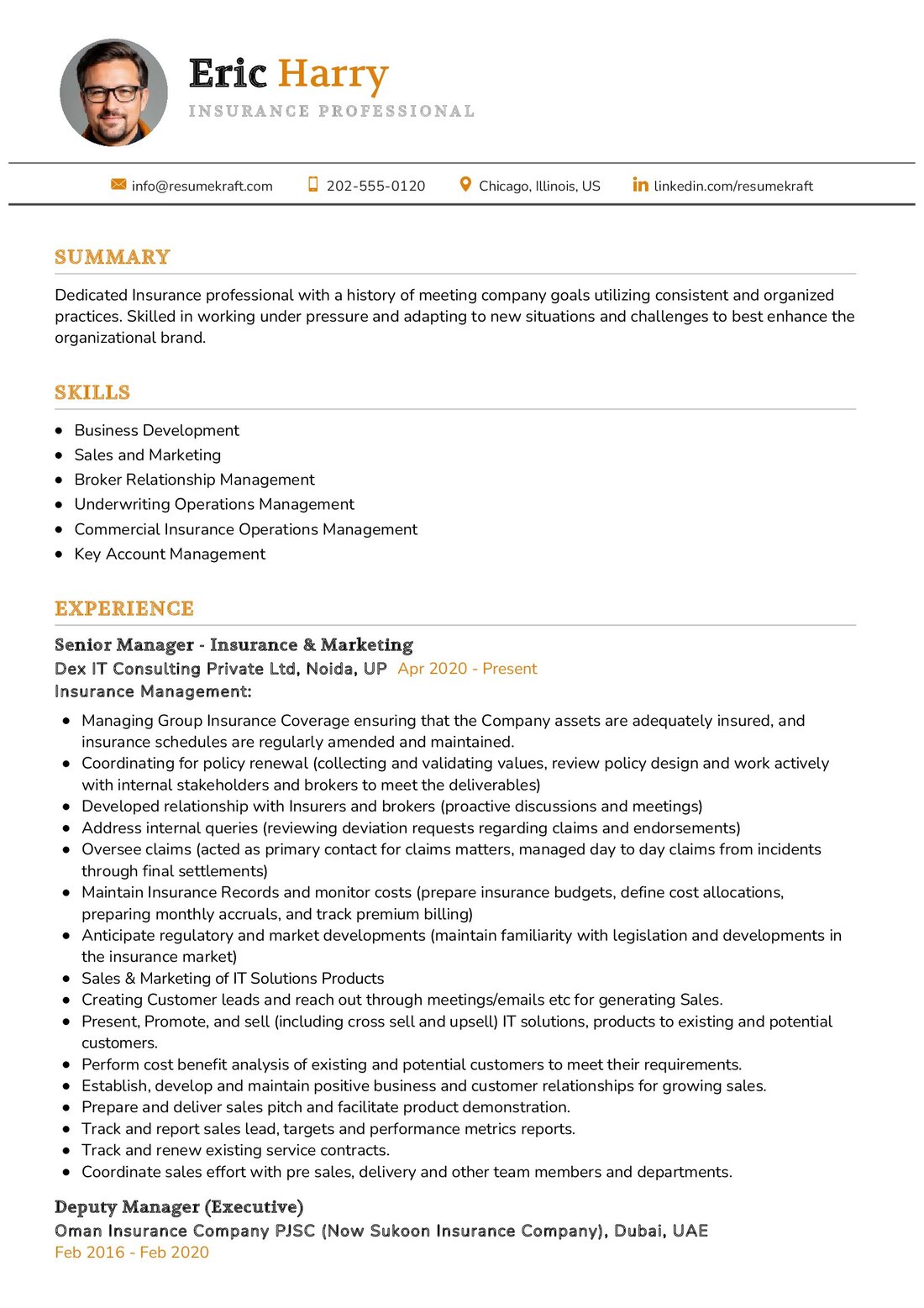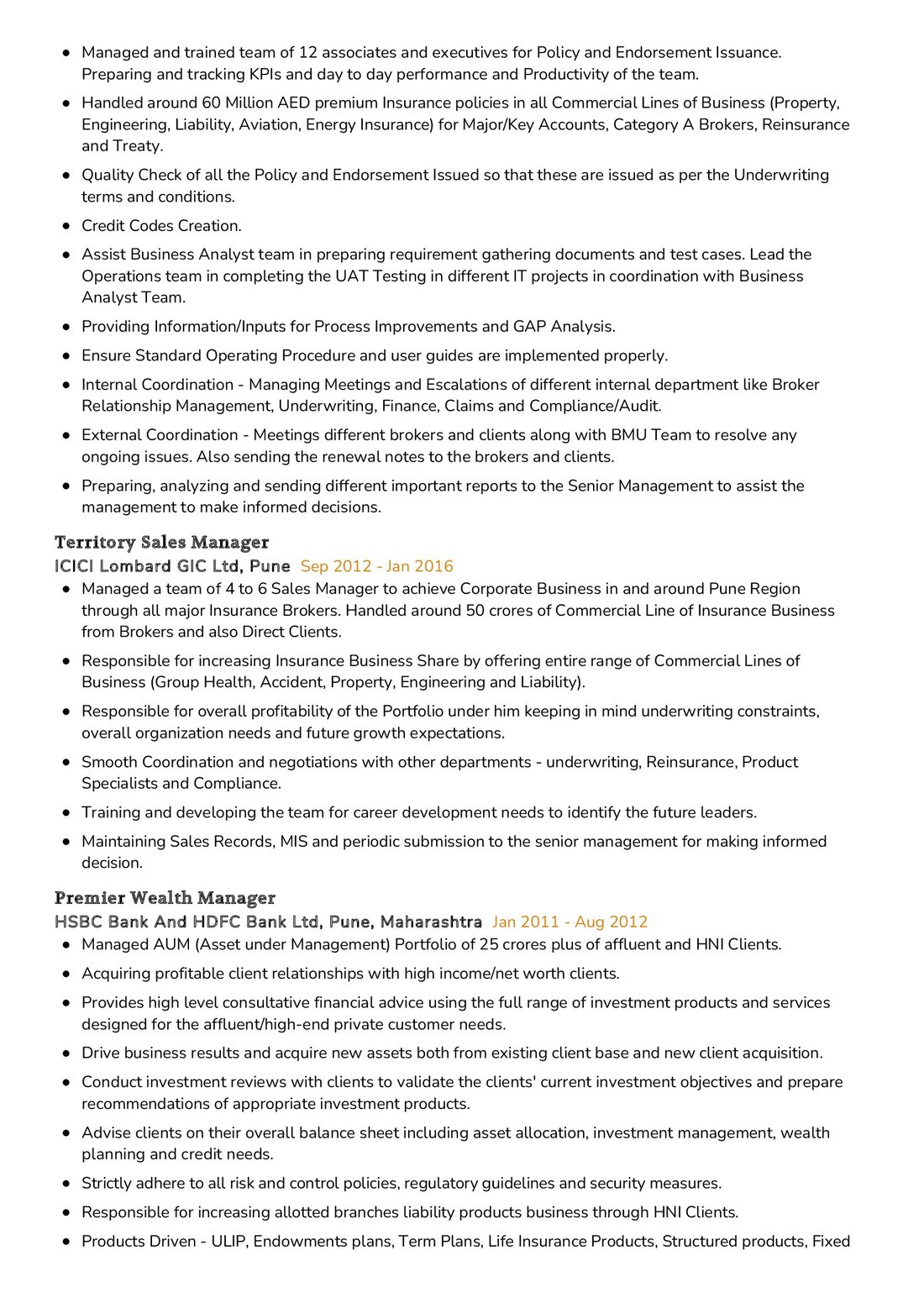Exploring the Role of an Insurance Professional
Insurance is a cornerstone of financial stability and security in our lives. Whether it’s protecting your home, car, health, or even planning for your retirement, insurance professionals play a vital role in helping individuals and businesses navigate the complex world of insurance. In this comprehensive guide, we will delve deep into the multifaceted role of an Insurance Professional. It’s a profession that demands a unique blend of industry knowledge, interpersonal skills, and financial expertise. Let’s unravel the various aspects of what it takes to be a successful Insurance Professional.
What Does It Mean to Be an Insurance Professional?
Insurance professionals, often referred to as insurance agents or brokers, are experts in the field of risk management. They act as intermediaries between insurance companies and individuals or businesses seeking insurance coverage. Their primary goal is to assess the unique needs and risks of their clients and recommend insurance policies that provide adequate protection.
Being an insurance professional goes beyond just selling policies. It involves a deep understanding of insurance products, excellent communication skills, and the ability to build trust with clients. Let’s explore the various facets of this dynamic profession:
- Insurance Product Knowledge: Insurance professionals must have an in-depth knowledge of various insurance products, including auto insurance, home insurance, life insurance, health insurance, and more. They should be able to explain the features, benefits, and limitations of each policy to clients.
- Client Assessment: Understanding a client’s specific needs and risk profile is crucial. Insurance professionals conduct thorough assessments to determine the right coverage for their clients. This involves asking questions about the client’s assets, liabilities, financial goals, and personal circumstances.
- Policy Recommendations: Based on their assessment, insurance professionals recommend insurance policies that align with the client’s needs. They explain the details of each policy, including premiums, deductibles, and coverage limits, to help clients make informed decisions.
- Claims Assistance: Insurance professionals assist clients in filing insurance claims when they experience a covered loss or damage. They act as advocates for their clients throughout the claims process, ensuring a smooth and fair resolution.
- Continuous Learning: The insurance industry is constantly evolving, with new products and regulations emerging regularly. Insurance professionals must stay updated on industry trends and changes to provide the best service to their clients.
Key Responsibilities of an Insurance Professional
The role of an insurance professional is diverse, encompassing a wide range of responsibilities. Let’s take a closer look at the key tasks that define this profession:
- Educating Clients: Insurance professionals educate clients about the importance of insurance and the specific risks they face. They explain complex insurance concepts in simple terms, ensuring clients understand their coverage.
- Policy Analysis: When clients already have insurance policies, insurance professionals review their existing coverage to identify gaps or areas where improvements can be made. This analysis helps clients optimize their insurance portfolios.
- Building Client Relationships: Trust is fundamental in the insurance industry. Insurance professionals build long-term relationships with their clients, providing ongoing support and addressing their changing needs over time.
- Market Research: To offer competitive insurance products, professionals stay informed about the offerings of various insurance companies. They compare policies, premiums, and customer reviews to recommend the best options to clients.
- Negotiation Skills: Insurance professionals negotiate with insurance companies on behalf of their clients. This includes negotiating policy terms, premiums, and claim settlements to ensure clients receive the best possible outcomes.
- Ethical Standards: Upholding ethical standards is paramount in the insurance industry. Professionals must act in the best interests of their clients and adhere to industry regulations and guidelines.
Qualifications and Skills Required
Becoming a successful insurance professional requires a combination of education, skills, and personal qualities. Here are the qualifications and skills typically required for this profession:
- Education: While a specific degree may not be mandatory, a bachelor’s degree in fields like finance, business, or economics can be advantageous. Many insurance professionals pursue industry-related certifications to enhance their knowledge and credibility.
- Communication Skills: Effective communication is essential when explaining complex insurance concepts to clients. Insurance professionals should be able to listen to clients’ needs and convey information clearly and persuasively.
- Analytical Skills: Analyzing clients’ financial situations and assessing risk requires strong analytical skills. Professionals should be detail-oriented and capable of evaluating policy options critically.
- Negotiation Skills: Negotiating with insurance companies and advocating for clients during claims processes necessitates excellent negotiation skills. Insurance professionals should be assertive and persuasive.
- Ethical Integrity: Clients trust insurance professionals to act in their best interests. Maintaining high ethical standards, honesty, and integrity is non-negotiable in this profession.
- Networking: Building a client base often relies on networking and referrals. Insurance professionals should be proactive in networking within their communities and industries.
Creating an Impactful Insurance Professional Resume
Your resume is your ticket to a successful career as an insurance professional. It’s the document that introduces you to potential employers and showcases your qualifications and skills. Here are some tips to craft an impactful resume:
- Highlight Your Achievements: Instead of merely listing job duties, emphasize your achievements and contributions in previous roles. Did you surpass sales targets? Were you recognized for exceptional client service? Mention these accomplishments.
- Customize for Each Application: Tailor your resume for each job application by aligning your qualifications with the specific job requirements. Highlight relevant skills and experiences that make you a strong fit for the position.
- Include Certifications: If you hold industry certifications, such as Certified Insurance Agent (CIA) or Chartered Property Casualty Underwriter (CPCU), include them prominently on your resume to demonstrate your expertise.
- Quantify Your Impact: Use metrics whenever possible to quantify your contributions. For example, “Increased client portfolio by 20% in the first quarter” or “Processed an average of 50 claims per month with a 98% success rate.”
Insurance Professional Resume Summary Examples
Your resume summary is the first impression you make on potential employers. Make it count by crafting a compelling summary that encapsulates your qualifications and aspirations. Here are some examples to inspire you:
- “Results-driven Insurance Professional with a track record of exceeding sales targets and providing top-notch client service. Dedicated to helping individuals and businesses safeguard their assets through tailored insurance solutions.”
- “Experienced Insurance Agent with expertise in analyzing client needs and recommending comprehensive insurance coverage. Adept at building and maintaining long-term client relationships while delivering exceptional results.”
- “Detail-oriented Insurance Broker with a passion for helping clients navigate the complexities of insurance. Skilled in policy analysis, negotiation, and ethical standards, committed to ensuring clients receive the best possible insurance solutions.”
Insurance Professional Resume Experience Section
Your experience section is where you showcase your journey in the insurance industry. Highlight your roles, responsibilities, and achievements. Here are some examples to guide you:
- “Served as an Insurance Agent at XYZ Insurance Agency, consistently exceeding annual sales targets by 15%. Provided personalized insurance solutions to over 200 clients, resulting in a 98% client retention rate.”
- “Managed a diverse portfolio of clients as an Insurance Broker at ABC Insurance Services. Conducted in-depth policy reviews, identifying coverage gaps and saving clients an average of 15% on premiums.”
- “Led a team of insurance professionals at DEF Insurance Group, fostering a culture of excellence and client-focused service. Increased team productivity by implementing streamlined processes, resulting in a 25% reduction in processing time.”
Education and Certifications for Your Insurance Professional Resume
Your educational background and certifications play a significant role in showcasing your qualifications as an insurance professional. Here’s how to present them effectively:
- Bachelor of Business Administration (BBA) in Finance, University of [Your University], [Year of Graduation]
- Certified Insurance Agent (CIA), [Certifying Body], [Year of Certification]
- Chartered Property Casualty Underwriter (CPCU), [Certifying Body], [Year of Certification]
Each educational achievement and certification represents a milestone in your journey towards becoming a proficient insurance professional.
Skills for Your Insurance Professional Resume
Your skill set is your toolbox as an insurance professional, equipped with a range of abilities that set you apart. Let’s list down the essential skills required for success in this profession:
Soft Skills:
- Effective Communication
- Client Relationship Building
- Negotiation and Persuasion
- Analytical Thinking
- Ethical Integrity
- Networking and Referral Generation
Hard Skills:
- Insurance Product Knowledge
- Policy Analysis
- Claims Processing
- Risk Assessment
- Market Research
- Software Proficiency (Insurance Management Software)
Each skill is a tool that empowers you to provide exceptional service and support to your clients.
Common Mistakes to Avoid in Your Insurance Professional Resume
When crafting your resume, steer clear of common pitfalls that can hinder your chances of landing your dream job. Here are some mistakes to avoid:
- Using Generic Language: Avoid using generic terms like “team player” or “detail-oriented.” Instead, provide specific examples that demonstrate these qualities.
- Ignoring Keywords: Many employers use applicant tracking systems (ATS) to scan resumes for specific keywords. Tailor your resume to include relevant keywords from the job description.
- Neglecting the Cover Letter: A well-written cover letter allows you to showcase your personality and enthusiasm for the role. Don’t miss the opportunity to connect with potential employers.
- Overloading with Jargon: While industry-specific terms are important, avoid overwhelming your resume with jargon that may be unfamiliar to some readers.
- Skipping Proofreading: Typos and grammatical errors can leave a negative impression. Proofread your resume carefully to ensure it’s error-free.
Key Takeaways for Your Insurance Professional Resume
As we conclude this comprehensive guide, remember that your resume is not just a document; it’s your ticket to a rewarding career as an insurance professional. Here are some unique key takeaways to keep in mind while crafting your resume:
- Emphasize your ability to build trust and long-term relationships with clients.
- Showcase your expertise in insurance products and risk assessment.
- Highlight your track record of achieving results and exceeding expectations.
- Demonstrate your commitment to ethical standards and ongoing professional development.
Now that you have the insights and tips needed to create a standout insurance professional resume, you’re well-prepared to embark on a successful career in this dynamic industry.
Finally, feel free to utilize resources like AI Resume Builder, Resume Design, Resume Samples, Resume Examples, Resume Skills, Resume Help, Resume Synonyms, and Job Responsibilities to create a standout application and prepare for the insurance professional job interview.



